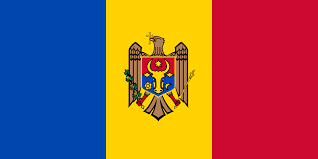Attorneys in the Federal Republic of Nigeria are advertising the availability of Citizenship by Investment (CBI/CIP) passports to their citizens, which is troubling for a number of reasons. The rampant and uncontrolled corruption, due to the country's oil wealth, has placed the proceeds of crime in the hands of many Nigerians, whose primary goal is to exit before they are arrested, and their dirty money confiscated. Therefore, you can expect the vast majority of CBI applicants from Nigeria to be using criminal proceeds to pay for their passports, and that, in their desperation, they will be inclined to pay bribes, kickbacks, and any other type of illicit gratuity, in their quest to obtain that prized non-African passport.
If you were thinking that they would be east for customs officials, and compliance officers at international banks to identify as Nigerians, two of the three CBI jurisdictions that local lawyers are promoting are located in the East Caribbean; Multilingual Nigerians, with their British-accented English, could easily pose as West Indians of African descent.
To add to the problem, the three jurisdictions that the Nigerian attorneys are openly promoting, the Republic of Moldova, the Federation of St Kitts & Nevis, and St Lucia, all have shortcomings associated with their CBI programs, which increases the chances that Nigerian organized crime figures, or corrupt government officials, will be able to acquire CBI passports.
(1) Moldova, which has a long history of organized crime activity, is just now commencing its CBI program; How will its Citizenship by Investment Unit be able to competently perform due diligence upon citizens of a country where Hausa and 520 additional languages are spoken? Also, given the widespread corruption, how will Moldovan compliance officers be able to determine the authenticity of what is held out to be official identity documents?

(2) St Kitts & Nevis has, notwithstanding its statements of effective due diligence and Customer Identification procedure, a history of accepting individuals who were engaged in the ongoing criminal activity, which was later exposed when they were subsequently arrested. Will their CBI unit staff cull out criminals and corrupt government officials? Past conduct indicates a negative answer.
(3) St Lucia's CBI program is small and untested; its ability to vet African applicants is questionable, and when coupled with the local government's zeal in expanding the program, to vastly increase the number of applicants, there is little hope that its screening process will be adequate to interdict criminal elements, corrupt government officials, and money launderers working for rich Nigerians holding large amounts of illegally-acquired oil profits.
Nigeria is perhaps unique among African nations; it has vast oil income, paired with a corrupt government official class, and also boasts a large number of white-collar criminals. That is a recipe for disaster, regarding movement CBI passports, into the hands of those who should not have them.
Chronicles of Monte Friesner - Financial Crime Analyst 
Contributed by Kenneth Rijock - Financial Crime Consultant










